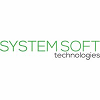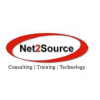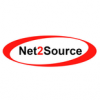Clinical Research Informatician
Salary Range : $125k - $146k (exempt)
Summary :
The Clinical Research Informatician is a bridge between clinicians / researchers and data. They blend their knowledge of clinical workflow, terminology, and practices with an understanding of health information technology to advance clinical and translational research towards improved patient care.
The Clinical Informatician will play an integral role focused on creating, testing, implementing, and maintaining applications and data for clinical areas.
Responsibilities include acting as a liaison between clinicians / researchers and data stewards, interfacing with stakeholders on informatics software development, maintenance, and operations, and creating streamlined workflows for the exploitation of healthcare data.
Minimum Education
Bachelor’s Degree In Health Information Management or Health Informatics OR B.S. in clinical field (nursing, etc.) and certification in Health Informatics B.
S. in informatics, computer science, statistics, biomedical engineering artificial intelligence AND certification in Health Informatics. Required
Master’s Degree preferred
Minimum Experience / Accountabilities
- Minimum 2 years experience in clinical research
- Minimum 2 years experience in clinical informatics
- Minimum 2 years experience in information technology and / or in academic healthcare setting
- Experience with clinical operations, Health Information Management, or care management
- Experience with clinical standards and coding
- Experience with clinical definitions, ontologies, dictionaries, and taxonomies
- Experience with KPIs as they relate to clinical areas
- Experience implementing new technologies in clinical areas
- Collect, organize, curate, and document healthcare information within the data warehouse.
- Apply experience with clinical information and workflows to the development of informatics tools, applications, analyses, and procedures.
- Develop, modify, test, and implement applications and algorithms for the collection, organization, and analysis of healthcare data.
- Assist in the development of presentations, scientific publications, and grant proposals.
- Apply insights gained from research to improve patient care or healthcare operations.
- Ability to interact directly with and interpret healthcare data using self-service tools or coding languages, such as SQL and Python
- Ability to liaison between clinical stakeholders and Enterprise Data & AI technical team members
- Expertise in analyzing and optimizing clinical workflows, leveraging IT to enhance efficiency, accuracy, and patient outcomes through targeted interventions and system improvements.
- Collaborate with software vendors and IT service providers to ensure that their products and services are tailored to meet the unique operational needs of the healthcare facility, optimizing performance and compliance









